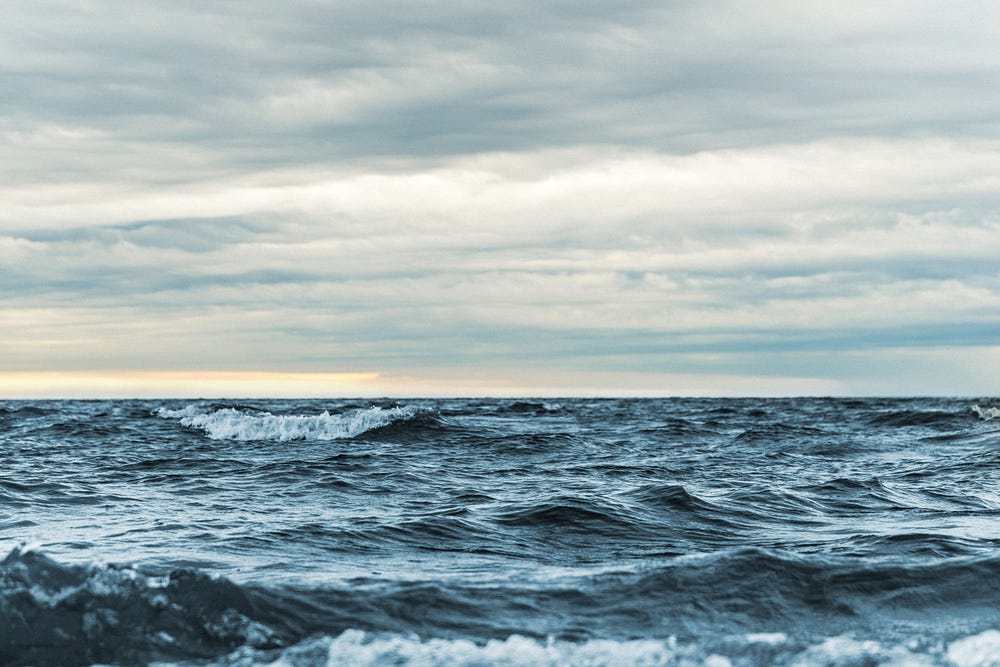Rowing Solo Across the Atlantic — On CBD
We like to acknowledge our fitness achievements by competing in races and challenges. Some of us like to run marathons and others like to climb mountains. Good thing is, there’s always a way for people to push themselves harder, both mentally and physically. You can continually level-up if you want to.
There’s a special class of individuals that like to push themselves to the outermost limits of what a human being is capable of. For those people, there’s an event called the Talisker Whiskey Challenge — a race across the Atlantic Ocean in a rowboat. It’s a feat that makes running a 100-mile race or summiting Mt. Everest look like a walk in the park.
Enter: Tim Crockett. A Special-Forces veteran preparing to row the 2018 race.

Tim’s upcoming journey means rowing solo 3,000+ nautical miles from La Gomera in the Canary Islands to English Harbor in Antigua, straight across the Atlantic Ocean.
Once clear of the harbor, Tim will be completely on his own. Solar panels will provide the electricity to power the systems onboard including communications, GPS navigation, and beacons to alert nearby ships to avoid being run over. But most important of all is the ‘water maker’ that provides fresh water for drinking and rehydrating his rations from sea water.
Out on the ocean, Tim will be completely self-sufficient as he single-handedly propels the 23ft boat for more than 3,000 nautical miles. There will be no outside assistance as he faces fatigue, blisters, salt sores, sleep deprivation and potential equipment failures, all the while facing the raw elements of the Atlantic Ocean.
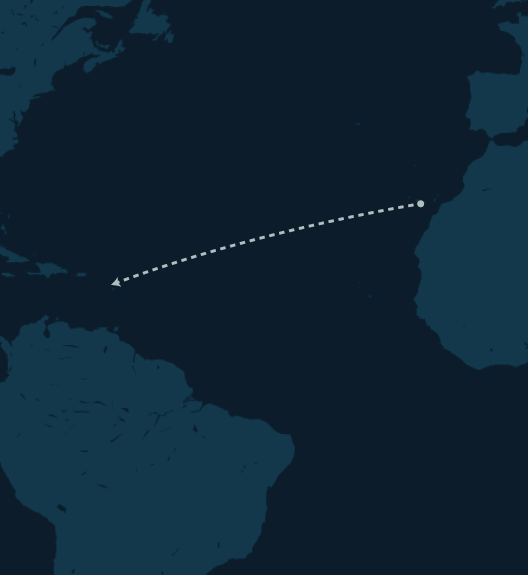
Tim has been using UnCanny Wellness Hemp CBD Products to help give him a natural competitive edge. They’ve been helping his continually push his body to the limit as he trains for this massive undertaking. With 23ft of boat, there isn’t any space for anything but the essentials. UnCanny CBD is one of those essentials.
We got the opportunity to ask Tim a few questions about his journey as he prepares for his solo row across the Atlantic Ocean.
UW: What does your training routine look like?
Tim: At the moment not all that different from a lot of other Crossfit athletes or those into ‘functional fitness’. I’ve just started to look at the next 8 months and where I want to be at the end of November when I head out to La Gomera and the start line. At the moment I try to train 5 times a week, 3 days of HIIT (high-intensity interval training) and 2 days Olympic weightlifting focusing on power. The plan is to build up to about 16–20 hours of rowing a week with a lot of focus on technique. Mixed in with all of this is mobility and injury recovery/prevention and nutrition and supplementation.
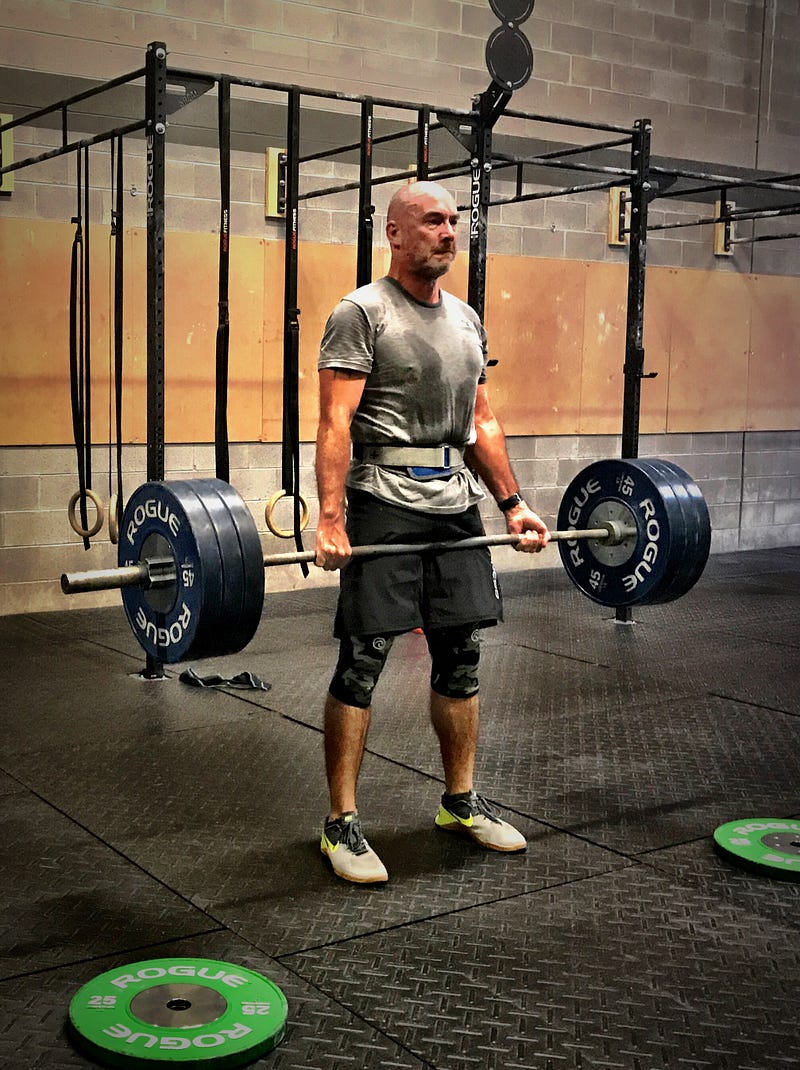
UW: This race seems to be as much of a mental challenge as it is a physical one. How are you training your mind for this journey?
Tim: Having spoken to other racers who have done this type of ocean rowing event before you’re right in saying there’s a huge mental component to the challenge and a slightly different one for us solo rowers than the teams. I think you first have to know what you’re getting yourself into before making a decision to row solo across the Atlantic, then there’s the planning as to ‘how’ as this drives so many other decisions.
I have always been comfortable with my own company and have been in many a stressful situation in the past so I’m less concerned in this area than I am perhaps in some kind of mechanical or electrical malfunction. However, with that said I’m sure as the start looms closer and throughout the course of the crossing I’ll experience a rollercoaster of emotions and psychological hurdles.
UW: The logistics of pulling this race off are mind-boggling. What are you going to have on the boat with you? Anything out of the ordinary?
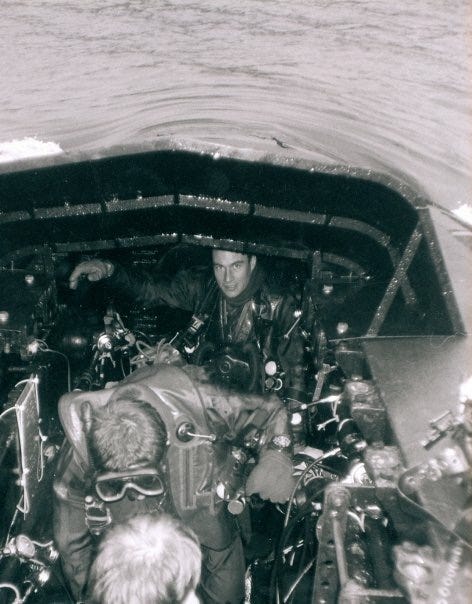
Tim: I would say any endurance event comes down to the planning preparation and the logistics. The first challenge is to get the boat built and equipped with all the safety and life-saving equipment you’d find on any ocean-going vessel as these are race requirements. The boats themselves are designed in a certain way to handle the conditions safely. From there we add navigation and communication equipment but I would say one of the most critical pieces of equipment is the ‘water maker’ which takes the sea water and makes it safe to drink, without this you wouldn’t be able to last long out on the water rowing 12–16 hours a day.
We will have 90 days worth of rations - 80% of which will be freeze-dried (another reason why the water maker is so crucial) even though I’m planning on taking 50 days or less to make the crossing. We have no control over the weather so safety and redundant or backup systems are built in where possible.
Creature comforts will be in short supply but I’ll take plenty of hot sauce and music as my luxuries.
UW: Are you happy to be doing this race alone, or would you rather be rowing with a team?
Tim: When I first looked into doing the race I was considering it as a pair but when I approached the one candidate and he declined I made the decision to do it as a solo which I think will work out better for me. While I’ll be alone on the water I will still have a big team behind me helping with weather routing, technical guidance, and moral support all the way!!
UW: Will you be in communication with people on the outside helping you out? Or is just you and the ocean with nobody to talk to until you finish?
Tim: There’s daily communication with the race marshals plus with my support team to get updates on the weather and routing but outside of that communications will be fairly minimal as it would also mean less time on the oars and more of a drain on the power system. There is no doubt going to be some homesickness and loneliness so we’ll use satellite phone time to deal with aspects of this as needed.
UW: What’s your motivation for participating in such an extreme race?
Tim: Seemed like a good idea. All kidding aside the main reason I’m doing this is to bring some attention back to a cause I feel strongly about and that is mental health concerns amongst our veterans. Many may remember the 22 Pushup challenge from a couple of years ago which was aimed at drawing the world’s attention to the number of veterans that were taking their own lives as a result of depression, anxiety, alienation and frustration whether brought about by PTS(D), the effects of traumatic brain injuries or other conditions.
I was nominated and I did my 22 Pushups for 22 days but it was around this time that I lost an old military buddy myself to PTS(D) and I felt that I personally needed to do more but at the time I had no idea what. I found out about the race from another friend and then after much research I thought that this was a challenge worthy enough to use as a platform to have the impact I am hoping for.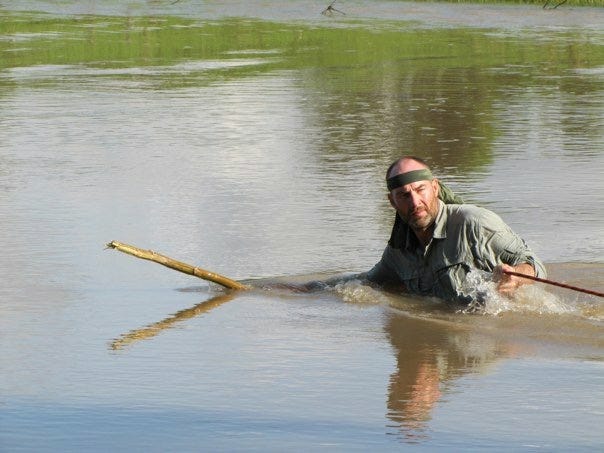
UW: Most people would think that competing in this race is absolutely crazy. What are some experiences you’ve had that have prepared you for a journey of this magnitude?
Tim: Obviously if you’re not a strong swimmer and don’t like the water this is probably not the challenge for you but I have lots of experience of being in small boats in big seas and have spent much of my early adult life either in, on or under the water. I’ve got 12 years military service to draw upon much of which was served in the ‘Special Boat Service’ (SBS). However, since leaving the service I have been many other situations where I have had to rely on the grey matter between my ears to create solutions to unique problems.Combine these two aspects together and I hope to have some of the key areas covered when considering rowing an ocean.
UW: This is arguably one of the most intense races on the planet. Are there any athletes (or other people) that you look up and think, “Wow, that person is a total badass”?
Tim: I think anyone who has rowed an ocean is worthy of that moniker, as each individual crossing has countless challenges that make up their journey so I have total respect to all of them and I hope to learn from as many as possible.
I have spoken to a few solo rowers, many of whom have won their race and already have learnt so much but this last race was so fast and exciting that I’m sure there are a few more tricks and tips worth exploring.
UW: How do you see CBD Hemp Extracts fitting into the bigger picture of high-level athletics?
Tim: Being a slightly older (and battle-worn) rower I have been carrying some old injuries and have picked up some others last year in training so I’ve started using CBD blends that contain a number of anti-inflammatory herbs and botanicals to provide some relief and aid rehabilitation.
The plan is to arrive in La Gomera fit and strong and injury free and I see CBD as been part of that strategy.
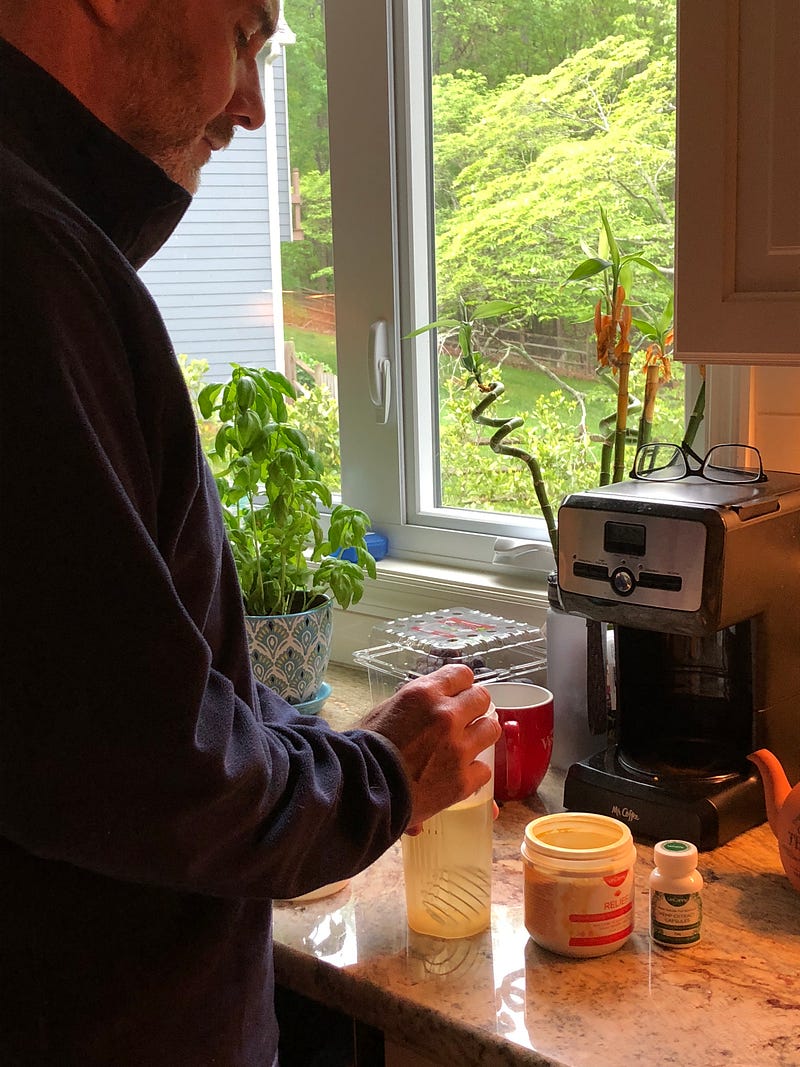
UW: What difference have you seen from incorporating CBD into your routine?
Tim: I have noticed a great deal of relief in my joints (knees and shoulders) which means I can train longer and recover quicker. I travel a lot and I notice more when I don’t take it. I believe as I increase my mobility work and use the CBD I’ll be pain-free long before I arrive at the start.
UW: What makes this race different than other extreme-endurance competitions like UltraMarathons?
Tim: The duration to begin with. I am planning on making the crossing in 50 days or less. The world record is 30 days but some of the longer solo crossings have taken 70+ days. Support is another big difference is that I have to take everything with me to support me for the whole duration, there is no material support from the outside.
When you’re at sea in a small (some would say very small) boat a lot can go wrong and help may be a long time coming.
UW: Anything else you’d like us to know about? What’s the best way to follow you as you get closer to this race?
Tim: Please visit the website www.tamethekraken.org and learn a little more about the backstory and charities. You’ll also find links to all our social media (Instagram: @tamethekraken Twitter: @rowatlantic Facebook: @RowtheAtlanticandTametheKraken)
We’re still looking for sponsors so please spread the word and get in touch.
UW: Lastly, what does wellness mean to you?
Tim: Being able to do all the things you’d like to do when you want to do them without physical or mental restriction.

